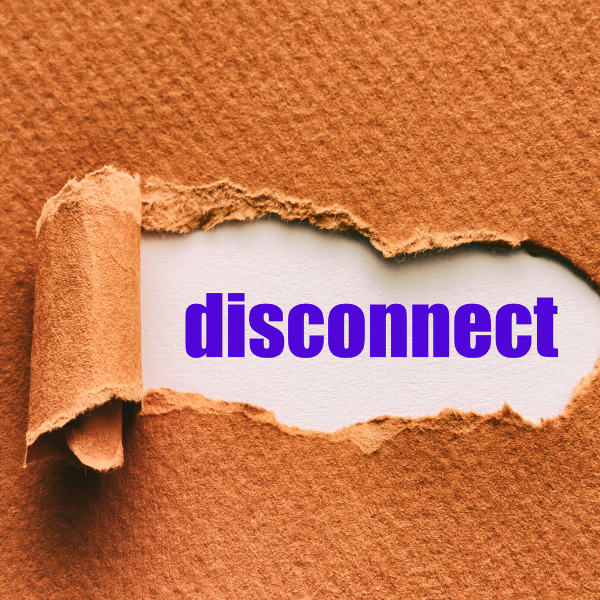All Things Admin Joins ASAP. Learn More ›
How to Give Yourself Grace
January 30, 2024

Dealing with burnout or imposter syndrome as an admin or executive assistant? Kaylon Emeary talks with Peyton Ticknor about self-care and tips for maintaining gratitude, focus, and self-confidence at work.
Recorded at the Administrative Professionals Conference 2023 and produced by the American Society of Administrative Professionals - ASAP. Learn more and submit a listener question at asaporg.com/podcast.
Download this episode for later and make sure to leave us a 5-star review on Spotify and Apple Podcasts!
Transcript
Leah Warwick: Hey, everyone. I'm Leah Warwick, and you're listening to The Admin Edge. This episode, recorded at the Administrative Professionals Conference 2023, is all about burnout, imposter syndrome, and self-care. I hope you enjoy this conversation with Peyton Ticknor, Senior Administrative Assistant; and Kaylon Emeary, Administrative Project Coordinator and a coffee break leader in our online community, the ASAP Circle. Peyton speaks first.
Peyton Ticknor: As administrative assistants, we are always helping other people. We are always supporting our leaders. We're doing things for others. We often find that we put ourselves on the back burner and we get burned out.
00:00:48
Tell me a situation where this may have happened to you or a coworker and how you overcame that. What did you do to relieve that burnout?
Kaylon Emeary: Sure. One thing for me, I started a new job, just maybe four or five days before we learned about the worldwide pandemic.
Peyton Ticknor: Oh, wow.
Kaylon Emeary: I started on Tuesday, and by Friday they were like, "Don't shake people's hands. Don't go to people's offices," which very quickly turned into, "We don't know how we're operating. We don't know what's going on, so just still keep doing everything and make it happen." That very quickly led to being confused about my role and just trying to be a really high performer, because I'm like, I don't really know what I'm doing. I'm in a new role, but I have all of these lists of tasks to do, so let me make sure I get everything done. And in doing that, I was just overhauling, like many of us were doing in the beginning of the pandemic.
00:01:56
It really just meant taking a step back from all of these tasks and saying, "Okay, I can feasibly do these things, and tomorrow I'll come back and revisit this list." That really helped me learn, not everything has to be done today. It needs to get done, but it doesn't have to be today.
Peyton Ticknor: We're not medical doctors.
Kaylon Emeary: Right.
Peyton Ticknor: We're not saving lives.
Kaylon Emeary: Nobody's going to be harmed or hurt in the process if I don't get it done today. They may be displeased with the decision; however, do you want me to come back tomorrow? [laughs]
Peyton Ticknor: Yes, very true. Well, for me, I have to find what I love to do, so I really like to exercise. For me, I work from home, fully remote, so getting up from my computer and making myself go eat lunch and then go for a walk outside or do something like that is critical because I just have to turn it off, do something for myself, and then come back. And when I come back, I'm more energized.
Kaylon Emeary: Exactly.
00:02:53
Peyton Ticknor: Sometimes you're in the middle of something and you don't want to stop it, but you need to stop to come back and you'll do an even better job when you come back. I think it's critical for us. So, why is self-care needed, and why is it so hard to put into practice?
Kaylon Emeary: I hear this all the time. It's something that I'm honestly just kind of good at. I like to take a break. It's like you say, Peyton. Sometimes you've just got to get up and take a break from what you're doing so that you can get refreshed and re-energized; but it's hard because we feel like people are depending on us. "If I don't do it, then who's going to do it? And if I don't do it, it doesn't get done, and then the exec is like, 'Oh, no, this didn't get done,'" and everybody just sort of goes into this tailspin of panic. I think that's what makes it hard.
00:03:51
Peyton Ticknor: Tell me your favorite way to take care of yourself. Give me three things that Kaylen does to take care of herself.
Kaylon Emeary: One of those things is like you said, getting up. I don't necessarily put a timer on and say, okay, I'm going to get up every hour and a half, but if I've come to a stopping place, I'll get up. I work on a hybrid schedule; so on days when I'm in the office, I'll get up and maybe go down the hall, go visit a couple of people that I haven't talked to in a while and just chat, catch up with them, and then go back to the office.
Peyton Ticknor: Oh, wow! [laughter]
Kaylon Emeary: I know — surprise! I'm not a coffee drinker, so making sure I have water just to rehydrate and refuel myself in that way. And then something else that I have done, if you've been on coffee breaks with us for a while, is called a "GLAD tracker." Now, I didn't come up with it, but by being in bullet-journaling groups, I used to do that as a DIY planner.
00:05:03
The G stands for "grateful." The L stands for "learning" or something you've learned. The A is "accomplished" or accomplishing. The D is for something that you found "delightful." I did that on a daily basis for a while. That became a little cumbersome, so doing it on a weekly basis and just reflecting over the week, like: “What's something I'm grateful for? What's something that I've learned or that I've been able to put into practice?”
Peyton Ticknor: Do you write it down on a piece of paper?
Kaylon Emeary: I do. I had a journal. I haven't been as great about that now, but when I was doing that, I noticed a huge difference.
Peyton Ticknor: I really like that. I was trying to do that every night. I had a journal that I got and I had it by my bed, and I was trying to write three things that brought me gratitude that day, and I found that doing it every day became cumbersome. So I think doing it once a week actually is a little bit better. Do you have a certain day that you do it that works for you?
00:06:01
Kaylon Emeary: No, it just sort of depended on the week. Some weeks were busier. Some were not. And I just made it fit in. Again, I didn't obligate myself to do it, but I found that when I have done it, it just helped me put things in perspective, because it is easy to get overwhelmed. It's so easy to just have things on top of things on top of things; but when you take a minute to just sit and reflect, it really does help you realize: "I actually did get a lot done. I actually do have a fulfilling life. I actually am really grateful for those small interactions with people." Or if you have family, those interactions with your family — your spouse or your partner or your children or your pet even. I have a dog, and so sometimes it just means that I'm grateful for the moments that he was happy to see me when I got home, and he hadn't chewed up anything: "I'm grateful that my apartment is intact when I get home." [laughs]
00:06:51
Peyton Ticknor: "I'm grateful that it wasn't raining today."
Kaylon Emeary: It can be anything. A philosophy that I've lived by for many years is: celebrate the small wins. By doing a GLAD tracker, it really helps you to do that, because we don't always do that. We think, "We're high performers; we've got to be on 100, 100% of the time." Nobody can sustain that. Not even batteries can sustain that! They die. [laughs] You literally have to recharge them.
Peyton Ticknor: Saying no is very hard.
Kaylon Emeary: Saying no to one project, instead of just taking on everything because I have to do it. No, just saying no to one thing. That ultimately becomes a huge win.
Peyton Ticknor: I want to finish this with a listener question that we received anonymously. "I'm the secretary to the superintendent of a small school district in Texas. I was selected by her for the position without applying, which I feel says a lot about me and my work. However, that adds pressure, and I can't help feeling like I don't belong when I make a mistake, or my performance isn't to the standards I hold myself to. I just started my fourth year in this position. How do I shake the imposter syndrome, and avoid burning myself out trying to go above and beyond to prove my worth?"
00:08:15
Kaylon Emeary: Well, talk about a layered question. One of the things that first strikes me is, somebody selected you for this role. You're already qualified. You already have what it takes, so going above and beyond is probably a pressure you're putting on yourself. If you weren't capable of doing the job, they probably wouldn't have thought about you. They probably wouldn't have said, "Hey, I really trust you do to this, and I know that you're dependable." They just wouldn't have done it. So that part is notable. I applaud you for that. Congratulations.
00:08:54
Something to be reminded of is what we've just been talking about. Not everything has to get done right now, today. Something that's helpful that I've heard — and I've heard it in different spaces — is: What is a good outcome? What is a better outcome? What is the best outcome? On that good-better-best sort of thing.
00:09:53
Peyton Ticknor: I wanted to add to the answer for this question. I wonder if the superintendent even — they probably think you're doing a great job, right? So have an honest and open conversation with your supervisor and just ask them, "How do you think I'm doing?" Chances are, they're going to say you're doing great, so you're just putting the pressure on yourself. I do it all the time. Get out of your head and get that clarity and that reinforcement that, yes, you are doing a good job. I think going forward, once you break that ice with your superintendent, if you haven't already done so, I think will help.
Kaylon Emeary: And doing weekly or biweekly check-ins is even helpful. You don't have to wait to mid-year review to check in.
Peyton Ticknor: No surprises.
Kaylon Emeary: Right. No surprises. You get a check-in. By working in school districts, there are benchmark tests all the time. Build that type of thing in for yourself and just see where you're going, see what needs to be improved and what's working well; and then that way, they know what's working well for you. You know what's working well for them. You're not just pushing yourself so much harder than you really need to.
00:10:58
Peyton Ticknor: I agree. Well, Kaylon, thank you so much for being here. I really enjoyed this conversation, and I think it'll be beneficial to many admins out there who put pressure on themselves and who find it hard to make time for self-care.
Kaylon Emeary: And I'm just excited to have had the opportunity and hope that you all have found some value in what we talked about here today.
[music playing]
Leah Warwick: Thank you for listening to The Admin Edge, produced by the American Society of Administrative Professionals. Original music and audio editing by Warwick Productions, with audio and video production at APC by 5 Tool Productions. If you like this podcast, please leave us a nice review wherever you listen to podcasts, and subscribe. If you want to send a listener question, you can submit via the form on our website at asaporg.com/podcast.
[music playing]












